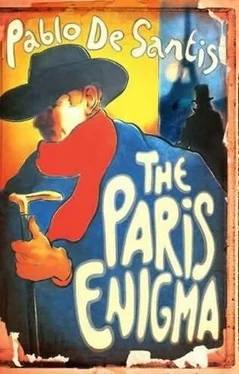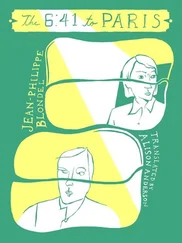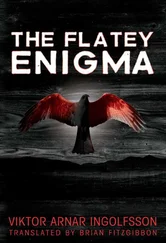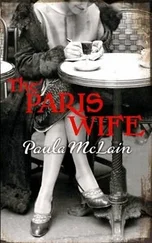“Orders?” asked Baldone. I nodded, not wanting to reveal anything. “Meanwhile we just sit here. Luckily we have the Sioux Indian here to liven things up.”
I didn’t say anything. I just left the room among envious gazes. I went to find Arzaky at the Numancia Hotel. He was already waiting for me at the door.
“Darbon hated me, but his loathing was nothing compared with his wife’s. If the old witch gives you something to drink, don’t taste it. Don’t even accept a mint from her.”
We took a car to a yellow house. The housekeeper made us wait in an anteroom filled with armor and shields and swords. It was clear that the owner had wanted to live amid a legendary past. He had achieved fame as a detective, but perhaps in his dreams Darbon didn’t imagine himself solving the case of the century, but rather recovering the Holy Sepulcher. I know, from my own experience, that no one is who they dream of being. We all aspire to something else, an ideal that we don’t want to sully by bringing it to close to our real lives. The orchestra conductor would have preferred to be an Olympic swimmer; the renowned painter, a skilled swordsman; the writer famous for his tragedies, an illiterate adventurer. Fate is nourished by errors; glory feeds on regret.
Darbon’s house, where he had raised his three daughters, had many rooms. It had a piano, heavy furniture, and objects that had been handed down through the generations. Everything pointed to the past, to roots, to tradition. Arzaky, on the other hand, had never married; he lived in the Numancia Hotel; he had no possessions. He devoted all his time to investigation. He lived like a foreigner who had just arrived and was about to leave.
“I am Polish and everything that implies,” he used to say in the adventures Tanner recounted. And he also said it in real life. It excited me to hear with my own ears the same phrase I had read so many times, the refrain that served as a prologue to his escapades.
The house seemed deserted, but there wasn’t a speck of dust, which was a sign that the walls hid an unf lagging domestic staff. I heard the distant noise of a door being opened and then slammed shut, and then other successive doors, closer ones, and finally Madame Darbon arrived. She looked like a woman who had been widowed long ago and had already recovered from the shock and grief. She didn’t even glance at me: she walked directly toward Arzaky with the decisiveness of someone about to commit murder. I feared she was hiding a stiletto in the sleeve of her violet dress. Arzaky watched her warily, like someone studying a dangerous beast in a cage.
“My husband hated you, Arzaky,” she said in greeting.
“Your husband hated everybody.”
“But you most of all. Did you come to give me your condolences? ”
“I a m invest igat ing Monsieur Darbon’s deat h. His assista nt, A r t hur Neska, told me that you have his papers. I want to know what leads he was following on his last investigation.”
Any other person would have adopted a conciliatory tone with that furious woman, but Arzaky spoke to her arrogantly. Here comes the moment when she kicks us out, I thought. But the widow said, “Let’s go up to my husband’s study.”
Louis Darbon’s office was nothing like the piled-high chaos of Craig’s. The walls were lined with metal filing cabinets, the kind used in accountant’s offices. On a large table were microscopes and magnifying glasses and five bronze lanterns with colored glass that might have been for discovering blood or poison stains. In one corner there was a camera. The wall that faced the window held a complete library of books on forensic medicine, dictionaries, and a copy of Vidocq’s Memoirs . There was also a portrait of Paris ’s famous chief of police. Darbon had considered himself his heir. The study was as much a laboratory as it was an office and reading room.
“It still seems as though my husband has just gone out and is about to come home,” said the widow.
Arzaky let out a slightly exaggerated sigh. I was about to start laughing, out of sheer nervousness.
On the desk was a cardboard box, the type used for mailing, with the inscription “Eiffel Affair.”
“May I borrow that?”
“I knew you were going to come. I prepared it for you.”
Arzaky took the widow’s hand between his. The woman immediately pulled it away. The detective, somewhat confused by the woman’s reaction, said, “I am being sincere. I assumed that you would ask me to quit the case and let one of the other detectives solve it, or Captain Bazeldin, who was such a good friend of your husband’s. Now I see that your interest in knowing the truth is more important to you than any old enmity.”
The widow laughed so abruptly that Arzaky shuddered. It was a warning.
“That old enmity didn’t disappear with my husband’s death. Quite the contrary: it has deepened. Before, I hated you because my husband did; now that you have caused his death, I despise you myself.”
“I didn’t force Monsieur Darbon to climb the tower in the middle of the night.”
“But if he hadn’t loathed you so much he’d still be alive now. He climbed that tower thinking of you; it was your image that gave him the strength to go up those stairs in the middle of the night, in spite of his leg and his respiratory problems. He climbed with your name on his lips; he thought that no other enemy mattered, and that’s why he lost his concentration.”
“So then why are you giving me his papers?”
“Because I want you to find the killer. I want him to feel hunted. To tremble with fear when he hears your footsteps and to take action. If he could best my husband, he can best you.”
Arzaky had an apartment on the top f loor of the Numancia Hotel, for which he paid a monthly rent. The first room served as his office, where he received clients and kept his archives. It was littered with papers. It was impossible to avoid stepping on the pages that completely covered the f loor: forensic reports, outstanding debts, unanswered correspondence, letters from women. That jumble of papers, which seemed to have acquired a life of its own, climbed as high as the desk drawers and the table, hiding firearms, bottles filled with dead insects, handkerchiefs stained with blood from who knows what distant murder, a mummified hand, tickets for the theater, for transatlantic voyages, for trips in hot-air balloons.
“Reading documents bores me. Why don’t you look for clues in Darbon’s papers? While you’re at it, organize them without making any changes.”
“I’ll do my best. But you know, my inexperience…” “Experience can be deceiving. It teaches us that at one point we already did what we are doing now. Nothing could be more false. Approach everything as if it’s for the first time.”
Arzaky went out, leaving me alone with the papers. He said he had to go supervise the progress of the exhibition about The Twelve Detectives. It seemed absurd to me that in the middle of a criminal matter he would bother with canes and other artifacts abandoned in dusty glass cases. But detectives are like artists. In the life of every actor, musician, singer, or writer there is always a moment when they begin to play the role of themselves, and everything that they do in the present is merely a ceremony with which they evoke something from their past. And life becomes, for the artist or the detective, the incessant fine-tuning of their own legend.
At first I feared that Darbon’s widow had tricked us, that she had manufactured the documents herself to send us off on false leads and toward real dangers. But that wasn’t the case: the pages were a compilation of Darbon’s methodical work. There was a diary where the old detective recorded the progress of his investigation. He pursued more than one case at a time, but he had devoted more energy to the Eiffel affair than to any other.
Читать дальше












